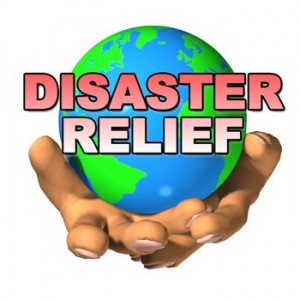 For those who haven’t experienced a disaster first hand it’s difficult to imagine, even from the graphic images fed to us by the media, the realities of the situation. What pictures cannot convey is the frustration of an owner watching their business suffer through the several days or weeks during which power is unavailable, transport facilities are out of operation, communications are down and access to the premises is prohibited. It’s exactly those restrictions that can spell the death of a business caught up in a disaster and unprepared to deal with the consequences.
For those who haven’t experienced a disaster first hand it’s difficult to imagine, even from the graphic images fed to us by the media, the realities of the situation. What pictures cannot convey is the frustration of an owner watching their business suffer through the several days or weeks during which power is unavailable, transport facilities are out of operation, communications are down and access to the premises is prohibited. It’s exactly those restrictions that can spell the death of a business caught up in a disaster and unprepared to deal with the consequences.
Are you prepared? Ask yourself these questions, they cover some of the most critical aspects of keeping the business afloat after a disaster.
- Have you audited your premises to assess how well they would stand up to the type(s) of disaster most likely to occur in your region?
- Do your premises have emergency backup power and lighting sources?
- Could you quickly obtain temporary equipment and replacement stock to keep your business going?
- Do you have access to a secondary site from which to operate your business if your primary location was damaged?
- Do you have an alternative source of supply if it is your supplier who suffers a disaster?
- Are your vital records (accounts, customer data, inventory records etc) backed up with a current version stored in a safe place?
- Do you have current and multiple contact information (e.g., home and cell phone numbers, personal email addresses) to communicate with your employees if a disaster prevented them from coming in to work?
- Have you consulted with an insurance professional to determine if your insurance coverage is adequate to help you get back in business following a disaster?
With disasters, both natural and man made, now very much in the spotlight, numerous government agencies and business organizations have developed information brochures and programs advising businesses on how to mitigate the effects of a disaster and speed recovery. Following are a few links with more extensive disaster planning information for your and your business.
Many businesses that are forced to close after a disaster never reopen at all. Business owners who educate themselves in disaster management and have a planned process for returning to normal operation maximize their chances for recovery.
